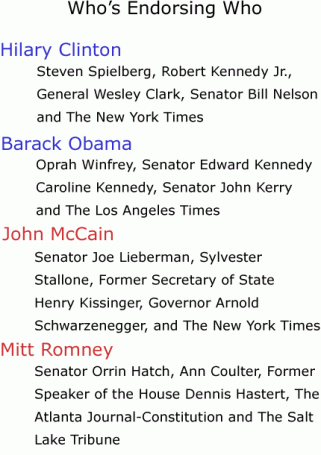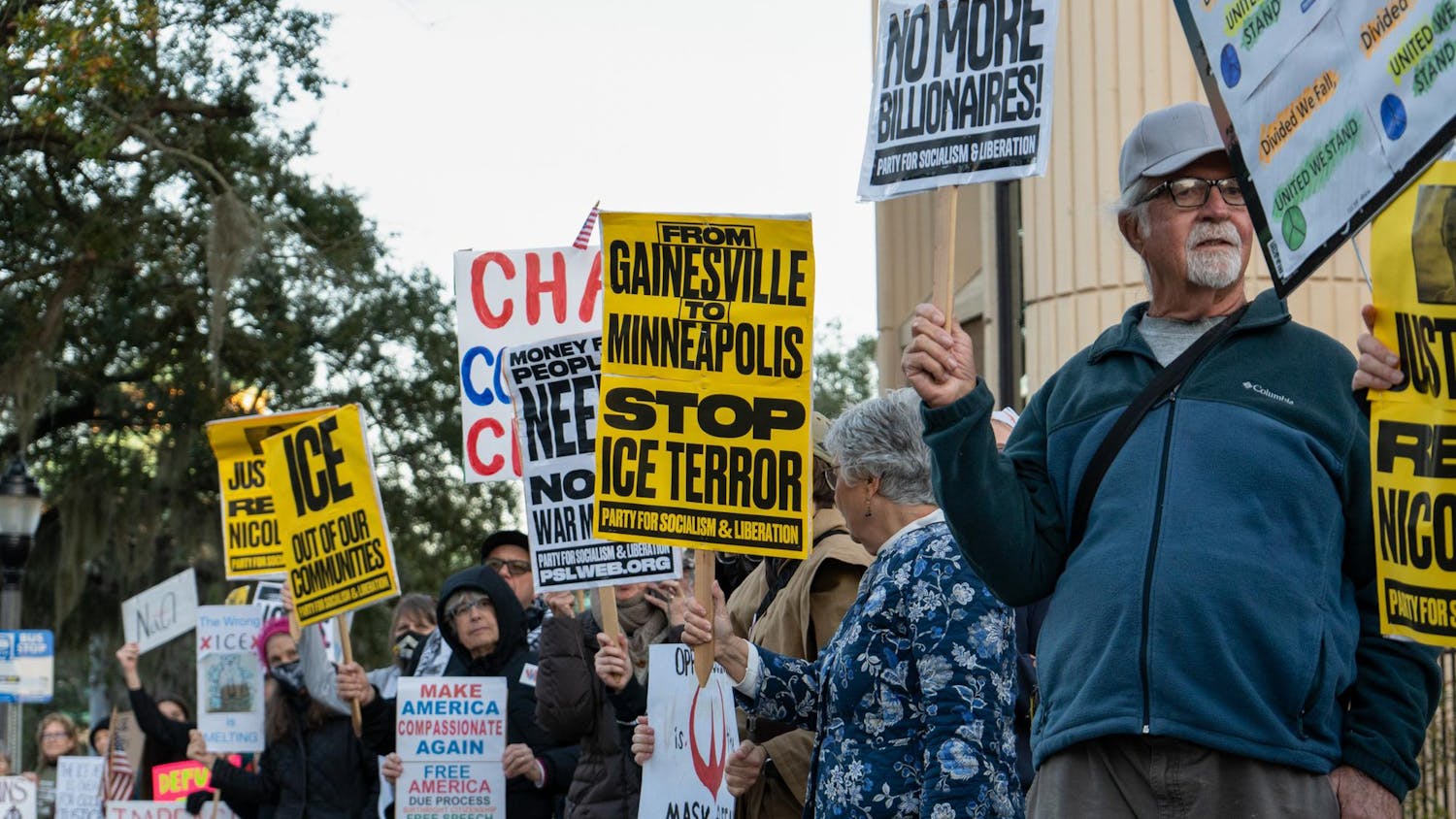Oprah Winfrey and Chuck Norris can make all the presidential endorsements they want, but it probably won't have a direct effect on votes.
While endorsements from celebrities, politicians and newspapers can earn candidates an extra 15 minutes of press coverage, it's unlikely that voters will base their decisions on the support of others, said Michael Heaney, an assistant professor of political science at UF.
But the endorsements do indirectly influence voters by increasing publicity, respect and campaign contributions for candidates, he said.
"The more candidates get in front of the camera, the more people think about them," he said.
Endorsements from party elites can also earn a candidate respect among party members, he said.
Those endorsements can also encourage campaign contributions, he added.
Some people even make endorsements to say something about themselves, Heaney said, such as Democrat-turned-Independent Joe Lieberman, who is endorsing Sen. John McCain, R-Ariz.
"By endorsing McCain, he's showing his independence," Heaney said.
Freshman Eric Kossina said he was not influenced by endorsements, but took notice of some, like Chuck Norris's endorsement of Mike Huckabee. He said it received a lot of media attention.
"Sometimes people tend to talk more about the endorsements than the candidates themselves," Kossina said.
But some said they saw merit in endorsements. Darryl Gresham, a criminology junior, said he thought endorsements from rappers and singers make a difference because people feel they can relate to them, but he still wouldn't vote for someone who didn't support his values.
"It doesn't take a famous person to influence someone," he said. "The influence is in how you were raised."






